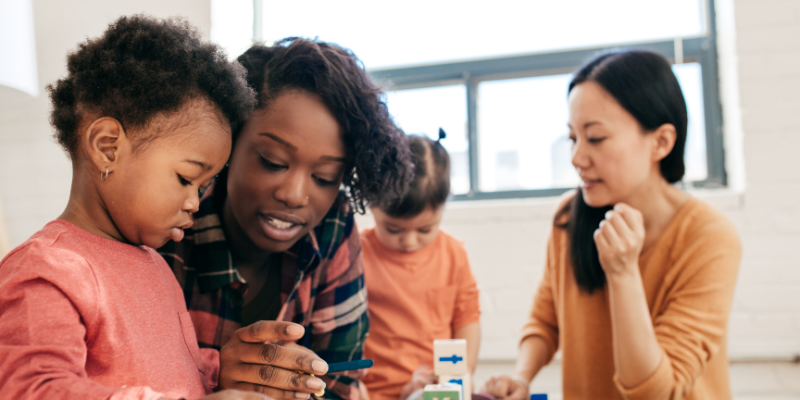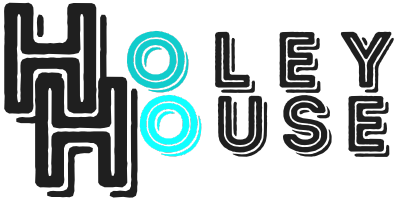Dr. Allan Schore’s Background and Contributions
Dr. Allan Schore, a distinguished clinical faculty member at UCLA, has made substantial contributions to the integration of developmental neuroscience with attachment theory. His pioneering Regulation Theory, focusing on the origin, psychopathogenesis, and psychotherapeutic treatment of the early forming subjective implicit self, has significantly advanced our understanding of emotional development and attachment theory. Through his comprehensive body of work, Dr. Schore has left an indelible mark on multiple disciplines, including developmental neuroscience, psychiatry, and attachment theory, demonstrating the breadth and depth of his influence.

An example of Dr. Schore’s profound impact can be seen in the way his work has revolutionized the understanding of early attachment experiences and their influence on stress regulation over the lifespan. By emphasizing the importance of right brain communication in psychotherapy, Dr. Schore has not only transformed classical attachment theory into modern attachment theory but has also provided clinicians and researchers with a deeper understanding of the profound effect of early attachment experiences on individuals. His research has opened new avenues for exploring the intricate connections between psychological and biological factors, underscoring the need for a holistic understanding of human functioning.
Moreover, Dr. Schore’s work has significantly influenced the understanding of emotional development and psychoanalysis. He has been described as “the American Bowlby” and “the world’s leading authority on how our right hemisphere regulates emotion and processes our sense of self”. The American Psychoanalytic Association has acknowledged him as a monumental figure in psychoanalytic and neuropsychoanalytic studies, further cementing his impact in the field of emotional development and psychoanalysis. His ability to integrate psychological and biological models of emotional and social development across the lifespan has broadened the horizons of research in various disciplines, effectively amplifying the impact of his pioneering work.
Dr. Allan Schore’s Impact in Emotional Development
Dr. Allan Schore’s impact in the field of emotional development and psychoanalysis is truly remarkable. His groundbreaking contributions have significantly advanced our understanding of emotional development and attachment theory. His emphasis on the significance of right brain communication in psychotherapy has not only transformed classical attachment theory into modern attachment theory but has also enhanced our comprehension of the fundamental mechanisms underlying emotional well-being and mental health. Through his research, Dr. Schore has highlighted the critical importance of the right hemisphere’s role in emotional regulation, shedding light on its crucial function in emotion processing and the development of the self.

Furthermore, Dr. Schore’s work has significantly influenced the understanding of attachment trauma and the importance of interactive repair in emotional growth. His emphasis on the significance of shared solitude and moments of silence in relationships has provided valuable insights into trauma studies and attachment theory. For those seeking a deeper understanding of emotional development and its profound impact, exploring Dr. Schore’s work is highly recommended. His contributions continue to shape the landscape of emotional development and psychoanalysis, making his work essential for those interested in these fields.
In addition to his influence in emotional development, Dr. Schore’s work has significantly impacted the understanding of attachment trauma and the importance of interactive repair in emotional growth. His emphasis on the significance of shared solitude and moments of silence in relationships has provided valuable insights into trauma studies and attachment theory. His research has opened new avenues for exploring the intricate connections between early attachment experiences and their lifelong impact on individuals’ emotional well-being.
Effects of Neglect and Abuse on Brain Development
Neglect and abuse during the critical period of right brain development can have severe consequences, impacting stress regulation over the lifespan. This critical period is crucial for the wiring of the right hemisphere, which is particularly affected by attachment experiences. For example, the ability of the caregiver to attune and regulate the baby’s emotional states is essential, and neglect during this time can be just as harmful as abuse. Dr. Allan Schore’s research emphasizes the importance of addressing implicit procedural memory in treatment, rather than solely focusing on insight models or changing cognitions. This approach is pivotal in understanding how early attachment experiences shape an individual’s stress-regulating systems and emotional well-being.
Moreover, neglect during the critical period of right brain development can lead to inefficient wiring, affecting stress regulation over the lifespan. This highlights the profound impact of early attachment experiences on an individual’s overall well-being. Dr. Schore’s work underscores the significance of the right brain’s initial trajectory being set up in the attachment relationship, playing a pivotal role in shaping an individual’s reaction to stress throughout their lifespan. This insight has broad implications for the fields of developmental neuroscience, psychiatry, and psychoanalysis, shedding light on the long-term consequences of early neglect and abuse on an individual’s emotional and psychological development.

Integration of Psychological and Biological Models
Dr. Allan Schore’s pioneering work has had a profound impact on the integration of psychological and biological models of emotional and social development across the lifespan. His Regulation Theory has provided valuable insights into the origin, psychopathogenesis, and psychotherapeutic treatment of the early forming subjective implicit self. By exploring the complex interplay between psychological and biological factors, Dr. Schore has significantly advanced our understanding of emotional development and attachment theory.
An example of this integration can be seen in Dr. Schore’s emphasis on the importance of right brain communication in psychotherapy. His research has demonstrated how the right brain, particularly the right hemisphere, plays a crucial role in processing emotions and regulating stress. This emphasis has not only transformed classical attachment theory into modern attachment theory but has also enhanced our comprehension of the fundamental mechanisms underlying emotional well-being and mental health. Dr. Schore’s work has led to a shift in the way we approach emotional development, highlighting the intricate connections between psychological and biological factors and underscoring the need for a holistic understanding of human functioning.
Furthermore, Dr. Schore’s work has significantly influenced the understanding of emotional development and psychoanalysis. He has been described as “the American Bowlby” and “the world’s leading authority on how our right hemisphere regulates emotion and processes our sense of self”. The American Psychoanalytic Association has acknowledged him as a monumental figure in psychoanalytic and neuropsychoanalytic studies, further cementing his impact in the field of emotional development and psychoanalysis. His ability to integrate psychological and biological models of emotional and social development across the lifespan has broadened the horizons of research in various disciplines, effectively amplifying the impact of his pioneering work.
The Development of the Unconscious Mind Course
In his pre-recorded online course, Dr. Allan N. Schore delves into the intricacies of the development of the unconscious mind, drawing from his extensive research and insights shared in his book “The Development of the Unconscious Mind”. This in-depth course goes beyond surface-level discussions, offering a comprehensive exploration of early emotional attachment, modern attachment theory, and the crucial role of early right brain regulation. Participants have the opportunity to gain invaluable insights into emotional development and attachment theory, effectively bridging the gap between theoretical knowledge and practical application in the field of developmental neuroscience and psychoanalysis.
One specific example of the course’s depth and relevance is its exploration of the profound impact of early emotional attachment on the formation of the unconscious mind. Dr. Schore’s course provides a platform for individuals to gain a deeper understanding of the intricate interplay between attachment experiences and the development of the unconscious self. By delving into the complexities of modern attachment theory and early right brain regulation, participants can gain a more nuanced understanding of the underlying mechanisms that shape emotional development and stress regulation over the lifespan.

Moreover, the course offers a unique opportunity for participants to engage with Dr. Schore’s groundbreaking work, gaining access to the latest research and insights that have significantly influenced the fields of developmental neuroscience and psychoanalysis. By participating in this course, individuals can enhance their knowledge, gain practical tools, and contribute to a more profound understanding of the unconscious mind and its implications for emotional well-being. For individuals seeking to deepen their understanding of attachment theory and emotional development, Dr. Schore’s course serves as an invaluable resource, providing a platform for continuous learning and professional development in the field of mental health and emotional well-being.
In addition to the course on the development of the unconscious mind, Dr. Schore has been offering valuable insights and resources through various platforms. His extensive body of work has contributed to the transformation of our understanding of emotional development and attachment theory, offering invaluable resources for professionals and individuals seeking to navigate the complexities of emotional well-being and healing from trauma.
Contributions to Neuroscience and Psychotherapy
Dr. Allan Schore’s work has been a catalyst in the ongoing emotional revolution across clinical and scientific disciplines, emphasizing the importance of the therapeutic alliance and right brain communication in psychotherapy. His groundbreaking research has significantly impacted the fields of neuroscience and psychotherapy, providing valuable insights into the profound influence of early attachment experiences on an individual’s emotional well-being and the therapeutic process.
For example, Dr. Schore’s Regulation Theory focuses on the origin, psychopathogenesis, and psychotherapeutic treatment of the early forming subjective implicit self. This has revolutionized the way therapists approach emotional regulation and healing, as it highlights the critical role of early attachment experiences in shaping an individual’s capacity for emotional regulation and stress management.
Furthermore, Dr. Schore’s emphasis on the importance of the therapeutic alliance and right brain communication has transformed classical attachment theory to modern attachment theory. This shift in perspective has led to a deeper understanding of the role of non-verbal, emotional communication in the therapeutic process. Therapists are now more attuned to the significance of implicit relational knowledge, affect regulation, and the right brain to right brain transference and countertransference communications in fostering emotional healing and growth.
Dr. Schore’s work has been integral in the transformation from classical attachment theory to modern attachment theory, significantly reshaping the landscape of psychiatric and psychological approaches. His research continues to inspire and guide professionals in their efforts to promote emotional resilience and psychological growth in individuals across the lifespan.
In addition to his influence in neuroscience and psychotherapy, Dr. Schore’s work has significantly impacted the understanding of attachment trauma and the importance of interactive repair in emotional growth. His research has provided valuable insights into the profound influence of early attachment experiences on an individual’s emotional well-being, shaping the way we approach trauma and emotional healing. This understanding is crucial for researchers, clinicians, and individuals seeking to navigate the complexities of emotional well-being and healing from trauma.
Recognition and Awards
Dr. Allan Schore’s esteemed career has been marked by numerous accolades and recognitions. His groundbreaking work has earned him Lifetime Achievement Awards from prestigious institutions such as Sapienza University of Rome and the Reiss-Davis Child Study Center. His induction into Sigma Xi, The Scientific Research Honor Society, further solidifies the impact of his contributions in the field of developmental neuroscience and psychoanalysis.
Dr. Schore’s recognition from various scientific and clinical organizations speaks volumes about the significance of his work. His influence has been instrumental in the current paradigm shift within the realm of mental health, shaping the way we understand emotional development and attachment trauma. His profound impact has not only garnered acclaim but has also laid the foundation for transformative advancements in the field.
One notable example of Dr. Schore’s influence is the integration of psychological and biological models of emotional and social development, a concept that has revolutionized the understanding of attachment theory. His emphasis on the importance of right brain communication in psychotherapy has led to the transformation from classical attachment theory to modern attachment theory, providing valuable insights into the therapeutic alliance and emotional communication.
Influence on Attachment Theory and Trauma Studies
Dr. Allan Schore’s work has significantly impacted the understanding of attachment trauma and the importance of interactive repair in emotional growth. His research sheds light on the profound effects of early attachment experiences on an individual’s emotional regulation and overall well-being. For example, neglect during the critical period of right brain development can lead to inefficient wiring and impact stress regulation over the lifespan, as Dr. Schore’s studies have shown.

Furthermore, Dr. Schore’s emphasis on the significance of shared solitude and moments of silence in relationships has provided valuable insights into trauma studies and attachment theory. His research has opened new avenues for exploring the intricate connections between attachment trauma, emotional growth, and the long-term consequences of early experiences. This understanding is crucial for researchers, clinicians, and individuals seeking to navigate the complexities of emotional well-being and healing from trauma.
In addition to influencing attachment theory and trauma studies, Dr. Schore’s research has provided valuable insights into the profound influence of early attachment experiences on an individual’s emotional well-being and overall development. His emphasis on the significance of shared solitude and moments of silence in relationships has shed light on the intricate dynamics of human relationships, offering invaluable insights for professionals and individuals seeking to navigate the complexities of emotional well-being and healing from trauma.
Conclusion and Call to Action
In conclusion, Dr. Allan Schore’s groundbreaking work in developmental neuroscience and psychoanalysis has had a profound impact on our understanding of early emotional development, attachment theory, and the effects of trauma. His Regulation Theory, with its focus on the origin and treatment of the early forming subjective implicit self, has significantly contributed to multiple disciplines, including psychiatry, psychoanalysis, and developmental psychology.
For individuals seeking further understanding of trauma and emotional well-being, the website Holey House offers a wealth of resources and support. The platform aims to be a source of education and healing for trauma survivors, covering topics such as the symptoms of trauma, the impact of trauma on relationships, and resources for healing. To explore these valuable insights and resources, visit the Holey House website.

0 Comments